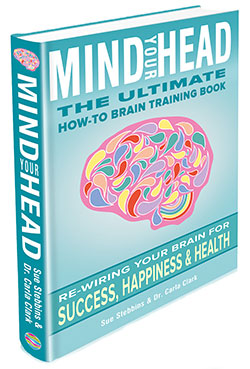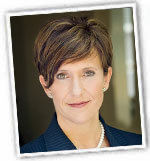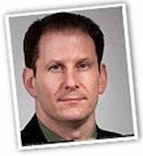What is an Emotion?
William James (1884)
Source: http://psychclassics.yorku.ca/James/emotion.htm
Every living creature is in fact a sort of lock, whose wards and springs presuppose special forms of key, - which keys however are not born attached to the locks, but are sure to be found in the world near by as life goes on. And the locks are indifferent to any but their own keys. The egg fails to fascinate the hound, the bird does not fear the precipice, the snake waxes not wroth at his kind, the deer cares nothing for the woman or the human babe. Those who wish for a full development of this point of view, should read Schneider's Der thierische Wille, - no other book shows how accurately anticipatory are the actions of animals, of the specific features of the environment in which they are to live.
Now among these nervous anticipations are of course to be reckoned the emotions, so far as these may be called forth directly by the perception of certain facts. In advance of all experience of elephants no child can but be frightened if he suddenly find one trumpeting and charging upon him. No woman can see a handsome little naked baby without delight, no man in the wilderness see a human form in the distance without excitement and curiosity. I said I should consider these emotions only so far as they have bodily movements of some sort for their accompaniments. But my first point is to show that their bodily accompaniments are much more far-reaching and complicated than we ordinarily suppose.
In the earlier books on Expression, written mostly from the artistic point of view, the signs of emotion visible from without were the only ones taken account of. Sir Charles Bell's celebrated Anatomy of Expression noticed the respiratory changes; and Bain's and Darwin's treatises went more thoroughly still into the study of the visceral factors involved,- changes in the functioning of glands and muscles, and in that of the circulatory apparatus. But not even a Darwin has exhaustively enumerated all the bodily affections characteristic of any one of the standard emotions. More and more, as physiology advances, we begin to discern how almost infinitely numerous and subtle they must be. The researches of Mosso with the plethysmograph have shown that not only the heart, but the entire circulatory system, forms a sort of sounding-board, which every change of our consciousness, however slight, may make reverberate. Hardly a sensation comes to us without sending waves of [p.192] alternate constriction and dilatation down the arteries of our arms. The blood-vessels of the abdomen act reciprocally with those of the more outward parts. The bladder and bowels, the glands of the mouth, throat, and skin, and the liver, are known to be affected gravely in certain severe emotions, and are unquestionably affected transiently when the emotions are of a lighter sort. That the heart-beats and the rhythm of breathing play a leading part in all emotions whatsoever, is a matter too notorious for proof. And what is really equally prominent, but less likely to be admitted until special attention is drawn to the fact, is the continuous co-operation of the voluntary muscles in our emotional states. Even when no change of outward attitude is produced, their inward tension alters to suit each varying mood, and is felt as a difference of tone or of strain. In depression the flexors tend to prevail; in elation or belligerent excitement the extensors take the lead. And the various permutations and combinations of which these organic activities are susceptible, make it abstractly possible that no shade of emotion, however slight, should be without a bodily reverberation as unique, when taken in its totality, as is the mental mood itself.
The immense number of parts modified in each emotion is what makes it so difficult for us to reproduce in cold blood the total and integral expression of any one of them. We may catch the trick with the voluntary muscles, but fail with the skin, glands, heart, and other viscera. Just as an artificially imitated sneeze lacks something of the reality, so the attempt to imitate an emotion in the absence of its normal instigating cause is apt to be rather "hollow".
The next thing to be noticed is this, that every one of the bodily changes, whatsoever it be, is felt, acutely or obscurely, the moment it occurs. If the reader has never paid attention to this matter, he will be both interested and astonished to learn how many different local bodily feelings he can detect in himself as characteristic of his various emotional moods. It would be perhaps too much to expect him to arrest the tide of any strong gust of passion for the sake of any such curious analysis as this; but he can observe more tranquil states, and that may be assumed here to be true of the greater which is shown to be true of the less. Our whole cubic capacity is sensibly alive; and each morsel of it contributes its pulsations of feeling, dim or sharp, pleasant, painful, or dubious, to that sense of personality that every one of us unfailingly carries with him. It is surprisingly what little items give accent to these complexes of sensibility.
[p.193] When worried by any slight trouble, one may find that the focus of one's bodily consciousness is the contraction, often quite inconsiderable, of the eyes and brows. When momentarily embarrassed, it is something in the pharynx that compels either a swallow, a clearing of the throat, or a slight cough; and so on for as many more instances as might be named. Our concern here being with the general view rather than with the details, I will not linger to discuss these but, assuming the point admitted that every change that occurs must be felt, I will pass on.[1]
I now proceed to urge the vital point of my whole theory, which is this. If we fancy some strong emotion, and then try to abstract from our consciousness of it all the feelings of its characteristic bodily symptoms, we find we have nothing left behind, no "mind-stuff" out of which the emotion can be constituted, and that a cold and neutral state of intellectual perception is all that remains. It is true, that although most people, when asked say that their introspection verifies this statement, some persist in saying theirs does not. Many cannot be made to understand the question. When you beg them to imagine away every feeling of laughter and of tendency to laugh from their consciousness of the ludicrousness of an object, and then to tell you what the feeling of its ludicrousness would be like, whether it be anything more than the perception that the object belongs to the class "funny," they persist in replying that the thing proposed is a physical impossibility, and that they always mustlaugh, if they see a funny object. Of course the task proposed is not the practical one of seeing a ludicrous object and annihilating one's tendency to laugh. It is the purely speculative one of subtracting certain elements of feeling from an emotional state supposed to exist in its fulness, and saying what the residual elements are. I cannot help thinking that all who rightly apprehend this problem will agree with the proposition above laid down. What kind of an emotion of fear would be left, if the feelings [p.194] neither of quickened heart-beats nor of shallow breathing, neither of trembling lips nor of weakened limbs, neither of goose-flesh nor of visceral stirrings, were present, it is quite impossible to think. Can one fancy the state of rage and picture no ebullition of it in the chest, no flushing of the face, no dilatation of the nostrils, no clenching of the teeth, no impulse to vigorous action, but in their stead limp muscles, calm breathing, and a placid face? The present writer, for one, certainly cannot. The rage is as completely evaporated as the sensation of its so-called manifestations, and the only thing that can possibly be supposed to take its place is some cold-blooded and dispassionate judicial sentence, confined entirely to the intellectual realm, to the effect that a certain person or persons merit chastisement for their sins. In like manner of grief: what would it be without its tears, its sobs, its suffocation of the heart, its pang in the breast-bone? A feelingless cognition that certain circumstances are deplorable, and nothing more. Every passion in turn tells the same story. A purely disembodied human emotion is a nonentity. I do not say that it is a contradiction in the nature of things, or that pure spirits are necessarily condemned to cold intellectual lives; but I say that for us, emotion dissociated from all bodily feeling is inconceivable. The more closely I scrutinise my states, the more persuaded I become, that whatever moods, affections, and passions I have, are in very truth constituted by, and made up of, those bodily changes we ordinarily call their expression or consequence; and the more it seems to me that if I were to become corporeally anaesthetic, I should be excluded from the life of the affections, harsh and tender alike, and drag out an existence of merely cognitive or intellectual form. Such an existence, although it seems to have been the ideal of ancient sages, is too apathetic to be keenly sought after by those born after the revival of the worship of sensibility, a few generations ago.
But if the emotion is nothing but the feeling of the reflex bodily effects of what we call its "objects," effects due to the connate adaptation of the nervous system to that object, we seem immediately faced by this objection: most of the objects of civilised men's emotions are things to which it would be preposterous to suppose their nervous systems connately adapted. Most occasions of shame and many insults are purely conventional, and vary with the social environment. The same is true of many matters of dread and of desire, and of many occasions of melancholy and regret. In these cases, at least, it would seem that the [p.195] ideas of shame, desire, regret, &c., must first have been attached by education and association to these conventional objects before the bodily changes could possibly be awakened. And if in these cases the bodily changes follow the ideas, instead of giving rise to them, why not then in all cases?
.
We Make it Easy to Succeed
Successwaves, Intl.
Brain Based Accelerated Success Audios
 |






